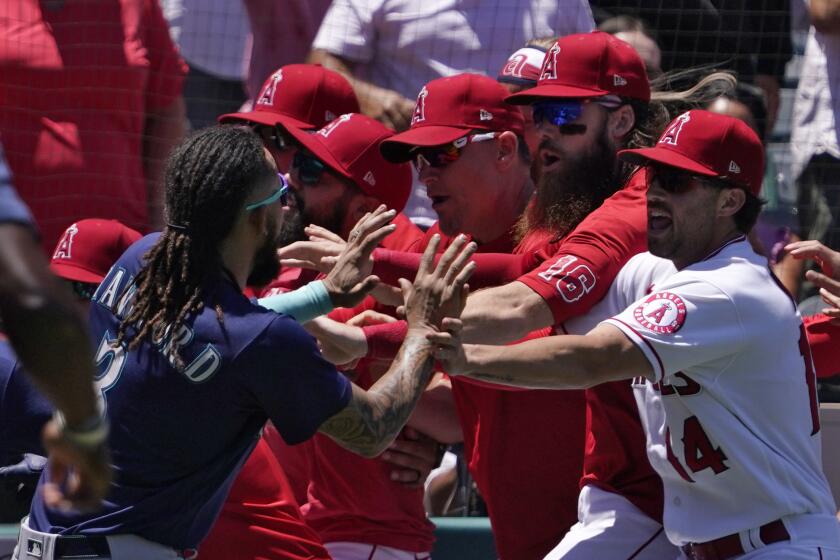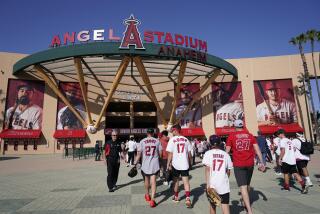Grand jury rips Anaheim for lack of transparency in Angel Stadium sale negotiations
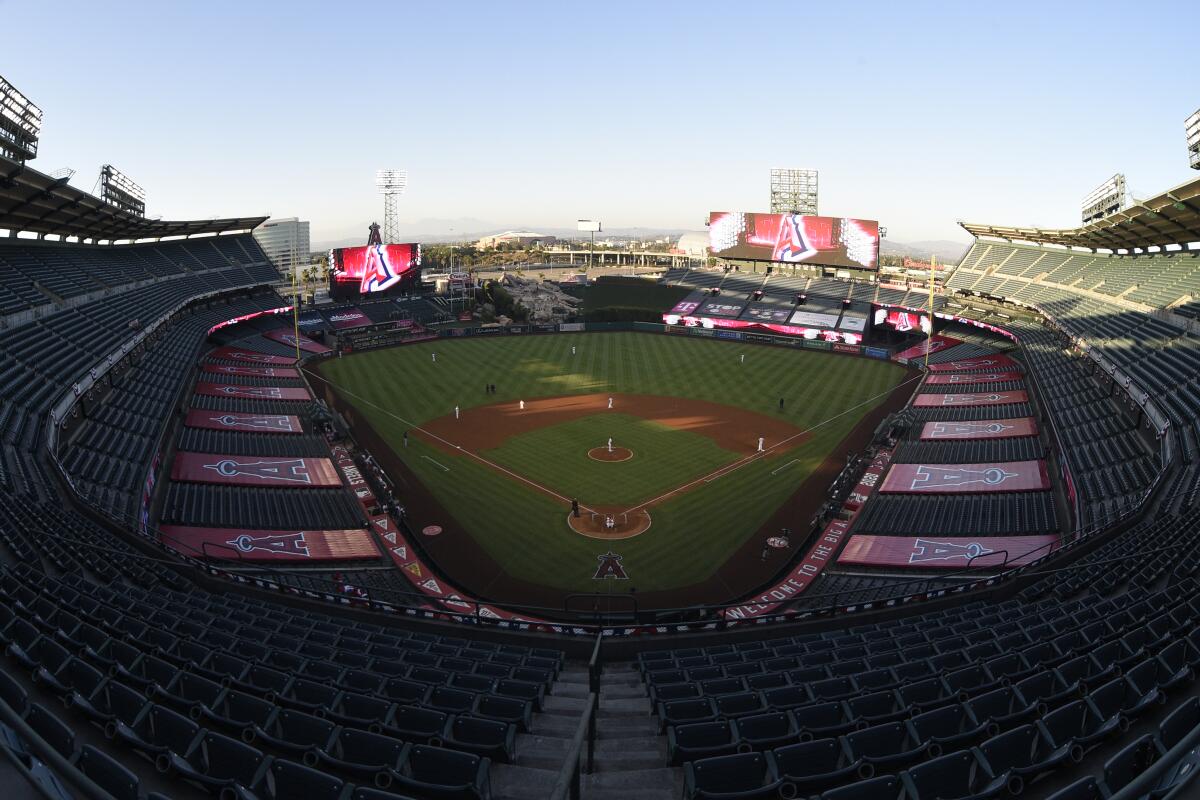
As the Angel Stadium deal died and the mayor of Anaheim resigned amid an FBI investigation into public corruption, the city of Anaheim has worked to isolate itself from the allegations leveled against the now-former mayor.
On Monday, an Orange County grand jury nonetheless blasted the Anaheim City Council — and not just now-disgraced former Mayor Harry Sidhu — for rushing to approve a stadium deal without proper transparency.
“The City Council majority’s inappropriate handling of the stadium property transactions betrayed its constituents,” the grand jury said in its report.
Mike Lyster, the city spokesman, declined to respond to that sentence. In a statement, Lyster said: “We appreciate the grand jury’s review. With recent events and new information brought to light, those issues now are being thoroughly discussed as part of a new, extensive public process for our city.”
Jose Moreno, the most prominent member of the council minority, said the grand jury report reinforced the point that Sidhu had just one of seven votes on the council.
The council majority, Moreno said, rushed to approve actions in support of corporate interests in Anaheim, including but not limited to the stadium deal.
“That’s just the pinnacle of their hubris,” Moreno said.
“At the end of the day, the city council — in all of these issues that the special interests that were working in unison with one another — needed four votes. They kept getting not just four but five votes, on key issues that we now know are a function of the interest of this self-proclaimed cabal. That is what I hope people keep their eye on.”
In an affidavit that was publicly disclosed May 16, FBI special agent Brian Adkins alleged that Sidhu had shared confidential negotiating information with the Angels — at a time when the city was negotiating against the team — in the hope the team would provide a million-dollar contribution to his reelection campaign. Sidhu’s attorney has denied those claims.
Adkins also alleged that Sidhu had “attempted to obstruct” the grand jury inquiry into the stadium deal.
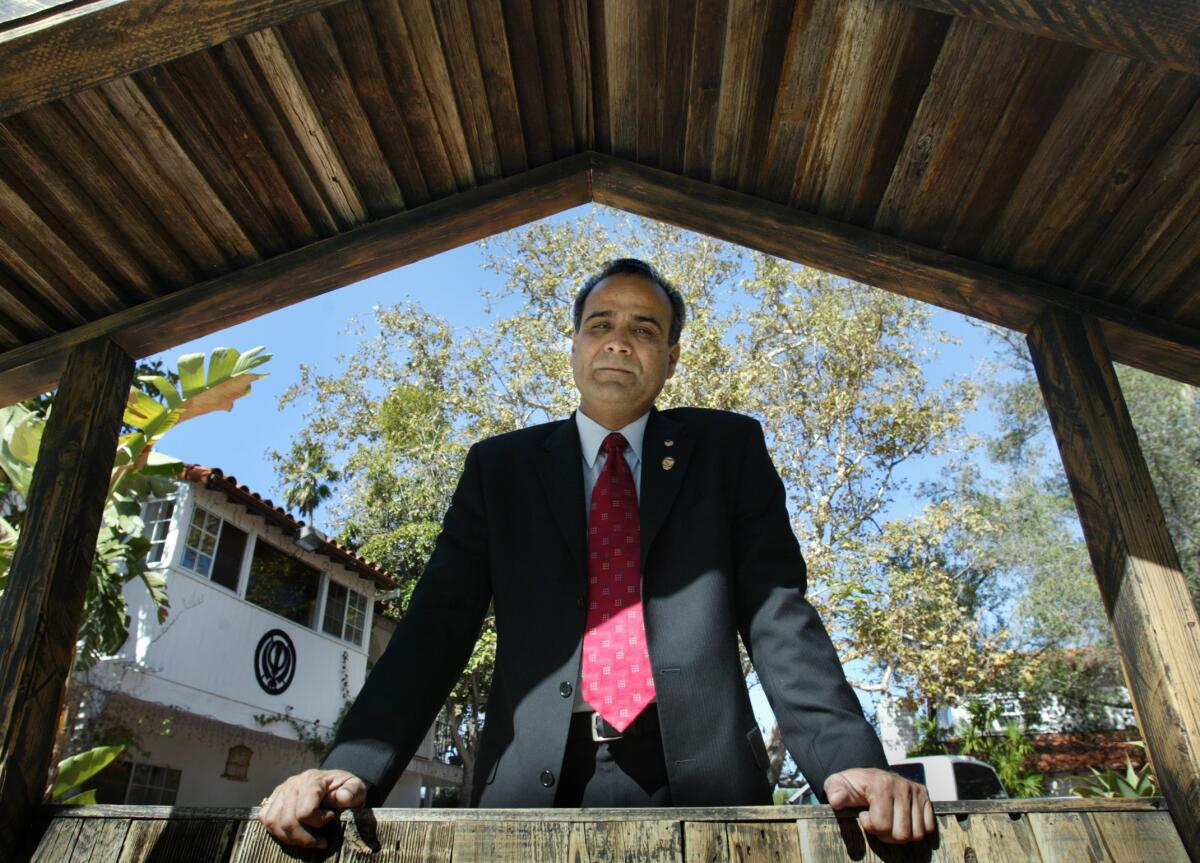
Even as city officials denounced Sidhu’s alleged behavior, claimed no knowledge of it, and killed the suddenly politically toxic deal, they stood behind the sale and the process behind it.
On the day the affidavit against Sidhu was disclosed, City Manager Jim Vanderpool said in a statement: “Throughout this process, Anaheim staff and the City Council have worked in good faith on a proposal that offered benefits for our community.”
Trevor O’Neil, now the mayor pro tem, said the council had approved the deal in the best interest of the city.
Benches clear for the Angels and Mariners after pitcher Andrew Wantz hits Seattle’s Jesse Winker with a pitch during the Angels’ 2-1 win Sunday.
“That was the case for myself and a majority of my council colleagues on the stadium plan, which we evaluated and supported on its merits,” O’Neil wrote in an op-ed in the Orange County Register.
After the grand jury released its report, O’Neil sounded a similar note.
“We welcome this report but don’t agree with everything in it,” he said in a statement.
“We evaluated the stadium proposal on its merits and in the best interest of those we serve. What we’ve learned put us in a different place, where the best thing we could do is cancel the deal, which we did swiftly.”
The grand jury said it had initiated its probe before learning of the FBI investigation. The grand jury’s most prominent finding directly contradicted claims that the city and its council majority had worked in the best interest of the city and its residents: “The city of Anaheim demonstrated persistent lack of transparency and rushed decision-making in its handling of the stadium property transactions, exacerbating distrust by the public, state and local government officials, and even some members of its own City Council.”
The ‘cabal’ steered policy, received contracts from the city and scripted remarks by Anaheim’s mayor, a Times investigation found.
The grand jury also cited the city for failure to share negotiating documents that “resulted in uninformed decision-making by the City Council,” for limiting “creative affordable housing strategies” as part of the sale, and for “stifling public discussion” because the council majority repeatedly blocked the council minority from even bringing up issues surrounding the deal, let alone debating them.
Under the deal, as approved by the council in 2019, the city would have received $150 million in cash for the 150-acre property from a company controlled by Angels owner Arte Moreno, who is not related to the councilman.
The city would have provided Arte Moreno’s company with $170 million in development credits to include parkland and affordable housing within a project that would have surrounded the stadium with homes, shops, restaurants, offices and hotels.
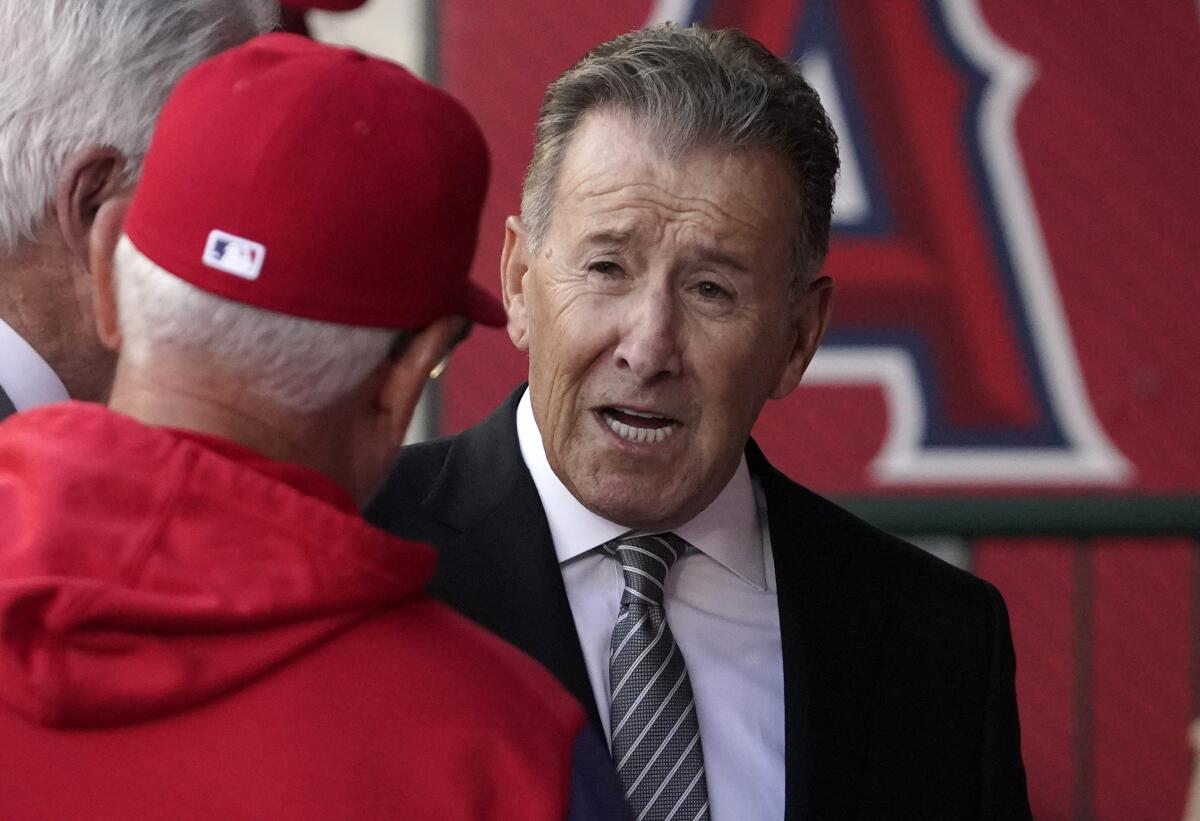
The grand jury said it “does not see the benefit” of such “financial community benefits” and recommended the council not offer them in any future stadium sale.
The grand jury also recommended the city ensure a minimum 30-day review period for any such land sale. The council majority had refused to support councilman Moreno’s call for a 30-day review period for the Angel Stadium sale.
To ensure a more fully informed public, the grand jury said any future negotiating committee should include more than one council member. The council majority voted for Sidhu to be the council’s lone representative in negotiations with the Angels, and the grand jury said the council minority had “found it very challenging to obtain expected detailed and factual negotiating updates.”
The grand jury excoriated Sidhu for this comment at one council meeting: “The City Council decides what happens in the city and not the voters.”
The wide-ranging investigation includes the sale of Angel Stadium and allegations of bribery involving Anaheim’s mayor.
The grand jury response: “Mayor Sidhu’s comment is not only offensive to his constituents, but it also contradicts the very intent of the Brown Act.”
The Brown Act essentially requires public business to be done in public. A citizens’ group sued the city for allegedly violating the Brown Act during stadium sale negotiations. The city prevailed.
In his affidavit, Adkins wrote that Sidhu’s actions “may have affected the ruling” because a cooperating witness said Sidhu gave him information about a land appraisal so he could share that information with the Angels. Because that information came from a closed session of the city council, Adkins wrote, “Sidhu’s actions may have violated the Brown Act.”
More to Read
Go beyond the scoreboard
Get the latest on L.A.'s teams in the daily Sports Report newsletter.
You may occasionally receive promotional content from the Los Angeles Times.

